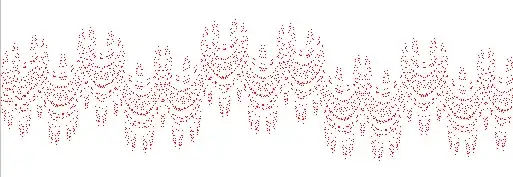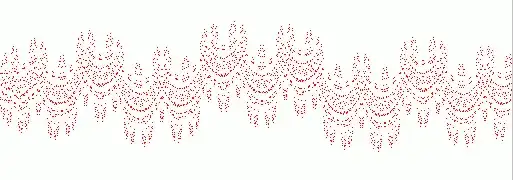I need to find $S_2(n)=\sum_{k=1}^n\lfloor k\varphi\rfloor^2$, where $\varphi$ is golden ratio. I use the approach used for $S(\alpha,n)=\sum_{k=1}^n\lfloor k\alpha\rfloor$, where $\alpha$ is arbitrary irrational, that can be found here (see Recursive formula in the 1st answer): Solve summation $\sum_{i=1}^n \lfloor e\cdot i \rfloor $
First, let $S_2(\alpha,n)=\sum_{k=1}^n\lfloor k\alpha\rfloor^2$, where $\alpha$ is an arbitrary irrational. We then need to find $S_2(\varphi,n)$.
For the first step in the approach mentioned above we have $\alpha=\varphi\in(1,2)$, hence we use Case 2 in the recursive formulas: $$ S_2(\varphi,n)=\frac{(N-1)N(2N-1)}{6}-S_2(\beta(\varphi),n_1), $$ where $N=\lceil n\varphi\rceil$, $\beta(\varphi)=\frac{\varphi}{\varphi-1}=\varphi^2$, and $n_1=\lfloor\frac{N}{\beta(\varphi)}\rfloor=\lfloor\frac{N}{\varphi^2}\rfloor$.
At the second step, we need to evaluate $S_2(\varphi^2,n_1)$. Only thing is that $\varphi^2>2$, so we have Case 1 in the recursive formulas, which looks like this: $$ S_2(\varphi^2,n_1)=\sum_{k=1}^{n_1}\lfloor k\varphi^2\rfloor^2=\sum_{k=1}^{n_1}\lfloor k(\varphi+1)\rfloor^2=\sum_{k=1}^{n_1}(k + \lfloor k\varphi\rfloor)^2= $$ $$ =\sum_{k=1}^{n_1}(k^2+2k\lfloor k\varphi\rfloor+\lfloor k\varphi\rfloor^2)=\sum_{k=1}^{n_1}k^2+2\sum_{k=1}^{n_1}k\lfloor k\varphi\rfloor+S_2(\varphi,n_1). $$ I've no idea what to do with the middle sum.
I tried to bypass Case 1-situation by exploiting the fact that $\lfloor n\varphi^2\rfloor=\lfloor\lfloor n\varphi\rfloor\varphi\rfloor+1=A_{n,1}+1$, where $A_{n,1}$ can be found in the $n$-th row and 1st column of the Wythoff array. The Case-1 sum would then look like this $$ S_2(\varphi^2,n_1)=\sum_{k=1}^{n_1}\lfloor k\varphi^2\rfloor^2=\sum_{k=1}^{n_1}(A_{n,1}+1)^2, $$ but I've no idea how to calculate numbers from the Wythoff array fast, let alone their squares. This may somehow be connected to the Zeckendorf representation, but I don't see how.
Any ideas? Thanks.

